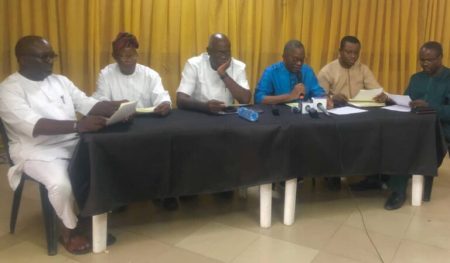At the 24th National Women’s Conference, held on Tuesday at Eko Hotels and Suites, Victoria Island, Lagos, Dr. Ibijoke Sanwo-Olu, the wife of Lagos State Governor Babajide Sanwo-Olu, delivered a compelling call for women to adopt more modest lifestyles and embrace practical financial management in response to the country’s challenging economic climate.
Dr. Sanwo-Olu highlighted the urgency of moving away from extravagant living, emphasizing that, “We are at a pivotal moment where prudent and deliberate living has never been more critical.” She stressed the need for women to focus on meaningful expenditures and effective resource management, underscoring that every naira should be spent with purpose and accountability.
In addition to advocating for financial prudence, Dr. Sanwo-Olu encouraged women to consider farming and home gardening as strategies to reduce the cost of living. She lauded the ‘Every Home A Garden’ competition launched by Senator Oluremi Tinubu, which offers a substantial cash prize of N20 million to encourage households to adopt gardening practices. “This initiative is an excellent way to inspire households to integrate gardening into their daily lives,” she said.
Dr. Sanwo-Olu further emphasized that embracing these practices not only offers a cost-effective solution but also helps decrease dependence on purchased food items. “Farming and home gardening are practical measures to cut costs and ensure that our families have access to homegrown produce,” she added.
The conference also featured remarks from Governor Babajide Sanwo-Olu, who emphasized Lagos State’s commitment to increasing women’s representation in government. He highlighted that women currently occupy 30 percent of cabinet positions within the state, reflecting ongoing efforts to enhance their involvement in governance.
Additionally, Uju Kennedy-Ohanenye, the Minister of Women Affairs and Social Development, addressed the conference and shared insights on the Federal Government’s agricultural initiatives. She announced plans to involve women more significantly in the sector, aiming for a balanced representation with 30 percent for women and 70 percent for men. This initiative aligns with the government’s broader strategy to promote gender inclusivity in agriculture.
Overall, the conference underscored a collective push towards greater financial responsibility and agricultural engagement as essential strategies for navigating the current economic landscape.













